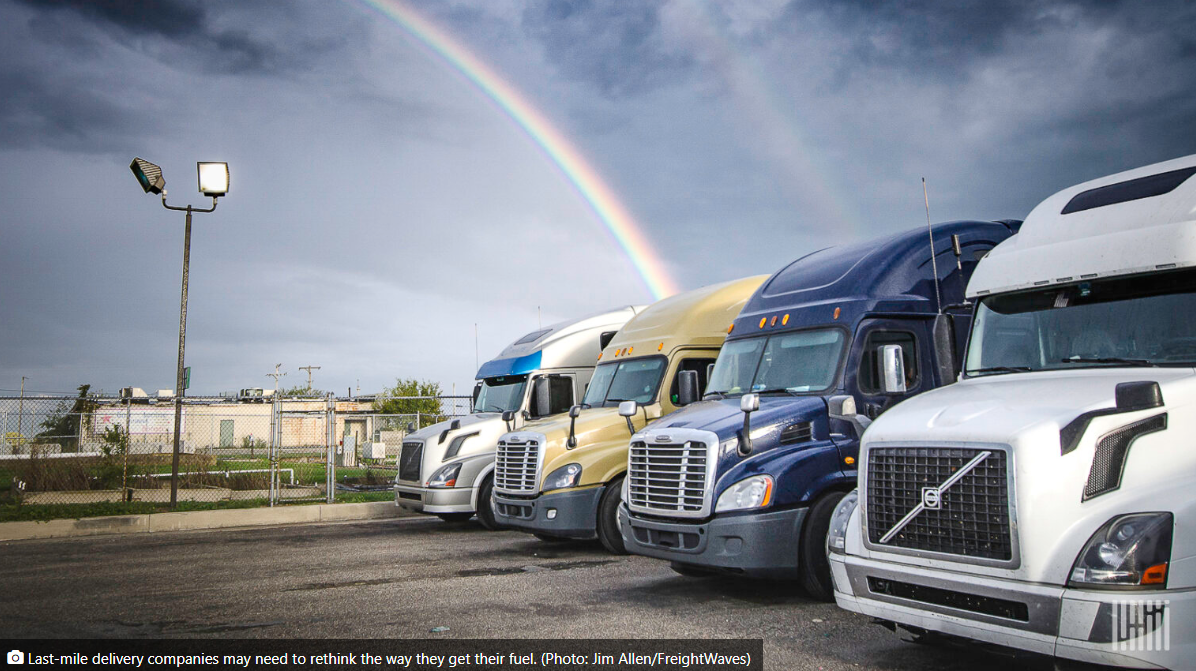


The views expressed here are solely those of the author and do not necessarily represent the views of FreightWaves or its affiliates.
By Frank Mycroft
In many ways, we’re lucky to be living in the modern culture of convenience. Tasks that once took hours of our day are now automated or simply avoided through innovation, leaving us more down time for the things that make us happy. But often, this comes with an environmental trade-off. Bottled beverages and packaging amplify the production of single-use plastics, bug-free fruit is soaked in pesticides, nonstick pans leach forever chemicals into waterways, and high-speed delivery of goods exacerbates emissions while clogging roads.
E-commerce and delivery have exploded in recent years and will surely continue to do so; demand for urban last-mile delivery is estimated to grow another 78% by 2030, matched by a 36% increase in e-commerce delivery vehicles on inner-city roads. At that rate, related emissions are expected to grow by more than 30% in 100 cities globally and commutes will be an average of 11 minutes longer by the end of this decade — not so convenient for those who want to limit global warming and make it to work in reasonable time.
The impact of convenience
This traces back to a common blind spot within convenience culture: Consumers may not consider the environmental impact of on-demand and expedited delivery. Often, these deliveries amount to driving hundreds of miles to and from the store for just one item, which the consumer may have been able to easily grab on a weekly grocery run. As last-mile delivery market growth demands that more vehicles — fleets of delivery vans, for example — travel at a faster rate, millions of trucks are running 24/7/365, causing emissions, pollution and fuel usage to skyrocket.
In response, the same retail mobility framework that has revolutionized shopping has hit the transportation industry in the form of mobile energy delivery. In conjunction with thoughtfully deployed data analytics, intentional routing and an open-minded approach to energy, mobility retail has the potential to support a humming supply chain while stymieing related emissions.
Read more: FreightWaves
561-295-1777